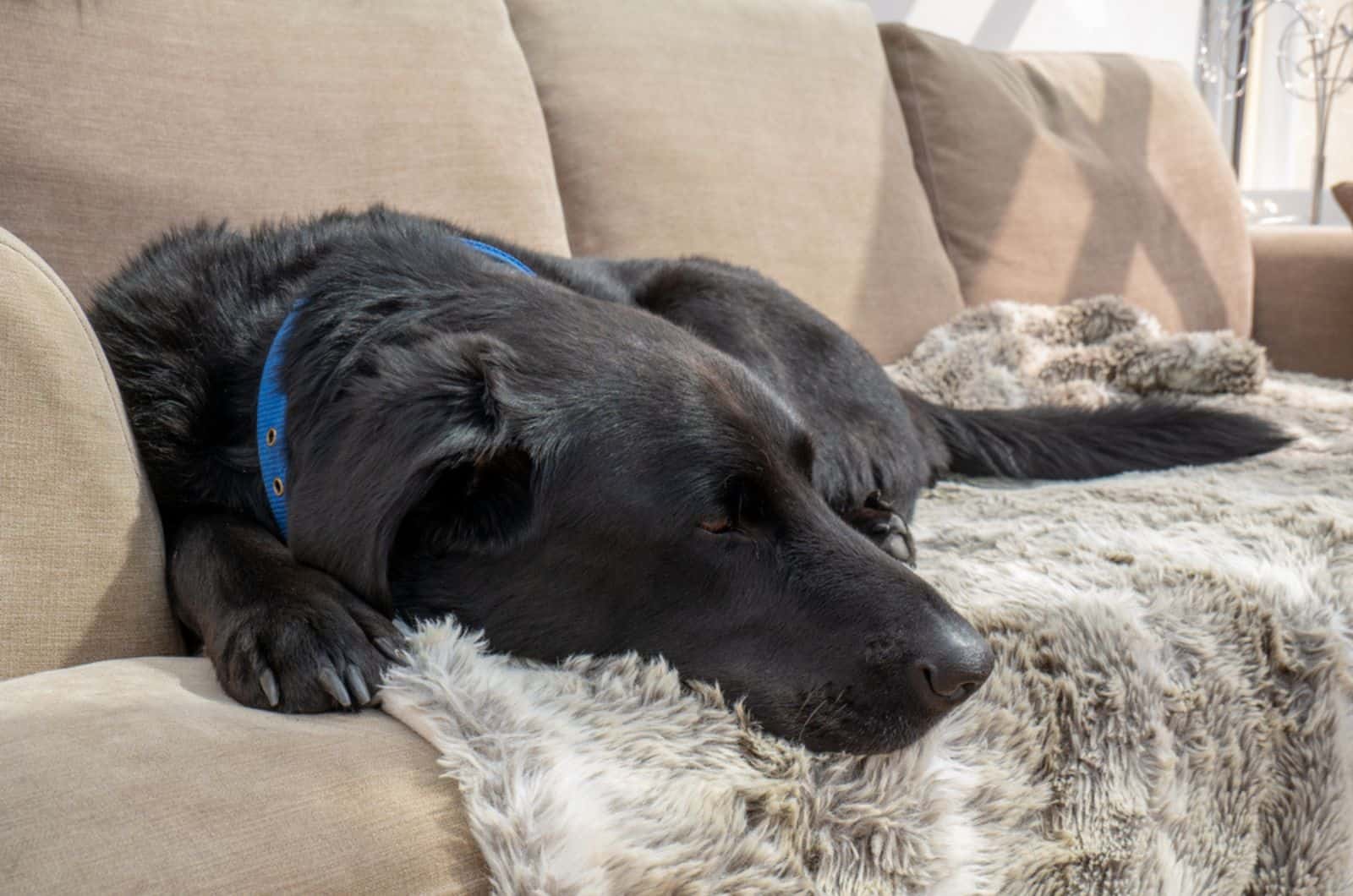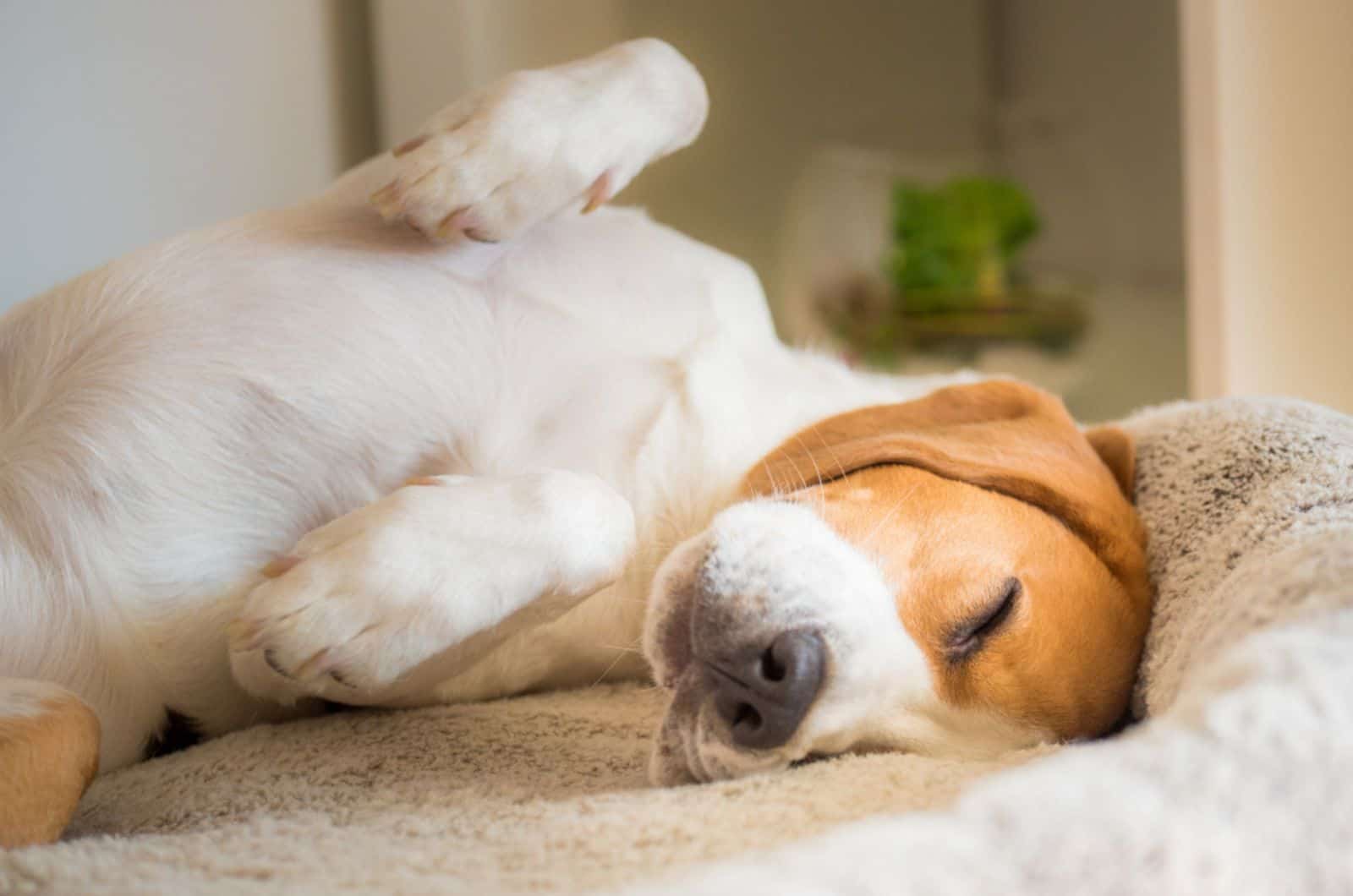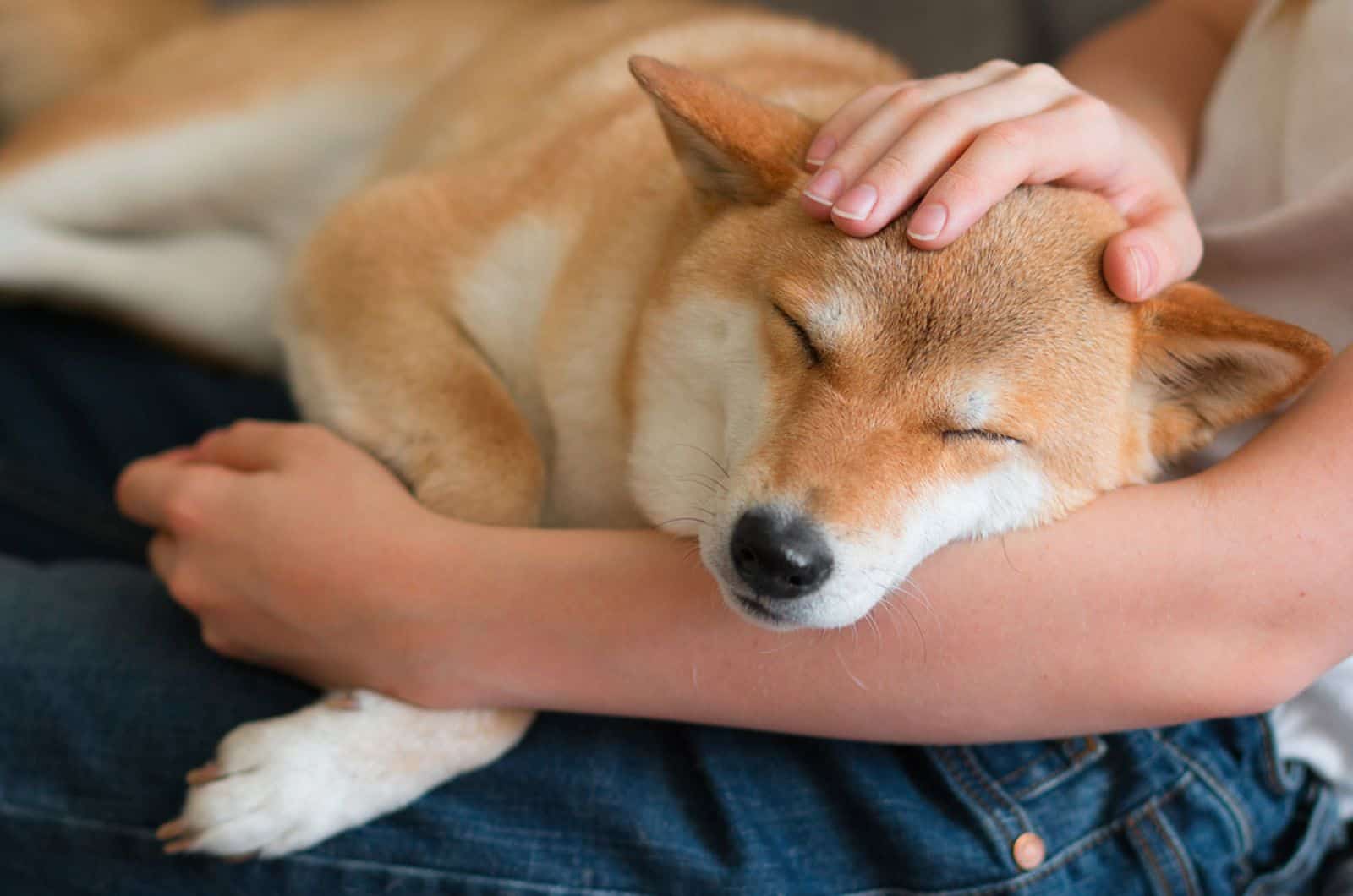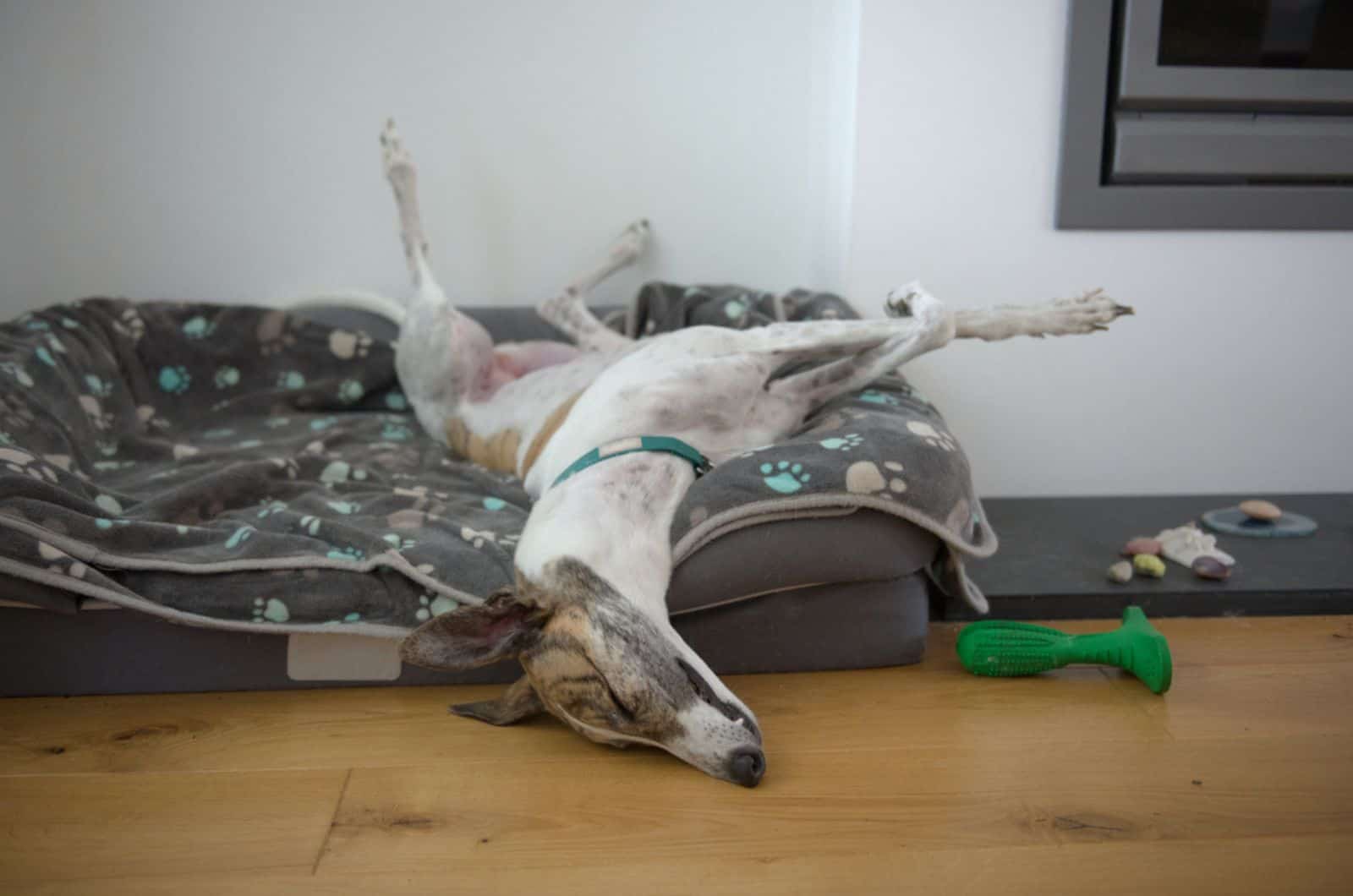Dogs experience sleep in a similar way that we do.[1] They have dreams and nightmares and go through the usual sleep cycles, but what if your dog is twitching in his sleep? Is there something wrong? Should you wake him?
Most of the time, you shouldn’t and he’s completely fine, his brain is just processing what he has experienced for the day which can trigger the occasional muscle spasm.
It may look harmful, but it’s just harmless and equivalent to when we turn in our beds or experience a nightmare ourselves.
If there’s an actual problem, your dog will likely wake up after the fact, though it depends on what the reason behind it is.
The Reason Why Your Dog Is Twitching In His Sleep

There are several reasons behind sleep twitching in dogs, and they’re all mostly tied to the processing of dreams or their activity prior to falling asleep.
For instance, if the dog had a very exhausting day, he’s more likely to twitch while sleeping as his muscles will be losing tension and relaxing.
The other reason is more mental, he’s dreaming and the memories of today are being processed and are starting to stick to his mind.
Some are good, less so, but depending on the memory, it can provoke a subconscious physical reaction like said twitch or even a whine.
In a more severe, but still harmless circumstance, he may encounter a nightmare so bad that it startles him and wakes him up, in which case you might see rapid twitching.
This bodily reaction is quite frequent in younger pups since they absorb a whole load of new information.
It somewhat wanes as the puppy hits adulthood, but starts occurring more often the closer he gets to his senior years from cognitive degradation and age.
Dogs Actually Dream?

They most certainly do. In fact, their sleep cycles are nearly identical to ours and they go through the exact same stages as we do.[1]
It takes them about 20 minutes to reach the cycle where twitching can occur, and they can experience both dreams and nightmares alike.
What they dream about is still unknown, at least until technology improves a bit further.
However, speculations often revolve around an amalgamation of the daily experiences paired with the sensations that please them, be it ones reliant on sight, smell, or taste.
Should I Wake My Dog Up If He’s Twitching From A Nightmare?

Absolutely not. Even though it may seem like your dog is going through a traumatic experience, a sudden wake up would only add more fuel to the stress fire.
This will not only harm your dog mentally, but it may earn you a pretty nasty bite that the pooch is going to do as a gut instinct out of self-defense, without yet fully grasping who he’s biting.
It only invites trouble and it’s best to let him process it on his own.
What’s The Bad Twitching Reason?

The bad twitch that I mentioned earlier doesn’t qualify as a similar twitch at all, but a seizure instead.
While rare in dogs, they can occur and can be problematic. It’s important to know the difference between it and a regular nightmare.
Well, regular twitching is often shorter than spasming from a seizure and more varied.
Spasms feel and appear more rigid in nature too, like a nasty cramp.
Another easy tell is that your dog will be drooling excessively prior to one and may develop momentary incontinence and either pee or defecate while still asleep.
It may be hard to discern initially, but believe me when I say that you’ll know it when you see it.
If you think that what you’re seeing may be a seizure, contact your dog’s vet as soon as you can to help diagnose the root cause behind it.
Whether it’s something treatable or not, I cannot say, but it can really be anything and the only way to find out is to get him checked out.
In Conclusion
If your dog is twitching while sleeping, it most likely is nothing to worry about.
He’s either experiencing his own dreams or his muscles are relaxing after a long day of walking and exploration.
Pups and senior dogs may do it more often depending on different factors, but they’re still going to be just fine.
There’s no cause for alarm and there’s nothing you need to do except check up on him every now and then without waking him up.
The only time a twitch could be a potential concern is if it’s actually a seizure which lasts longer and has messier side effects.
If you believe him to be having a seizure while sleeping, it’s better to be safe than sorry and a vet should be called as soon as possible to determine the cause of the problem if there is one.
That said, I believe that you’ll do your best to keep your furry little friend safe and healthy.
Until next time, pet parents.
RELATED: 6 Surprising Reasons Why Your Dog Is Crying In His Sleep
References:
[1] Róbert B., Anna K., Márta G., József T. (December, 2019.), Sleep in the dog: comparative, behavioral and translational relevance, DOI
